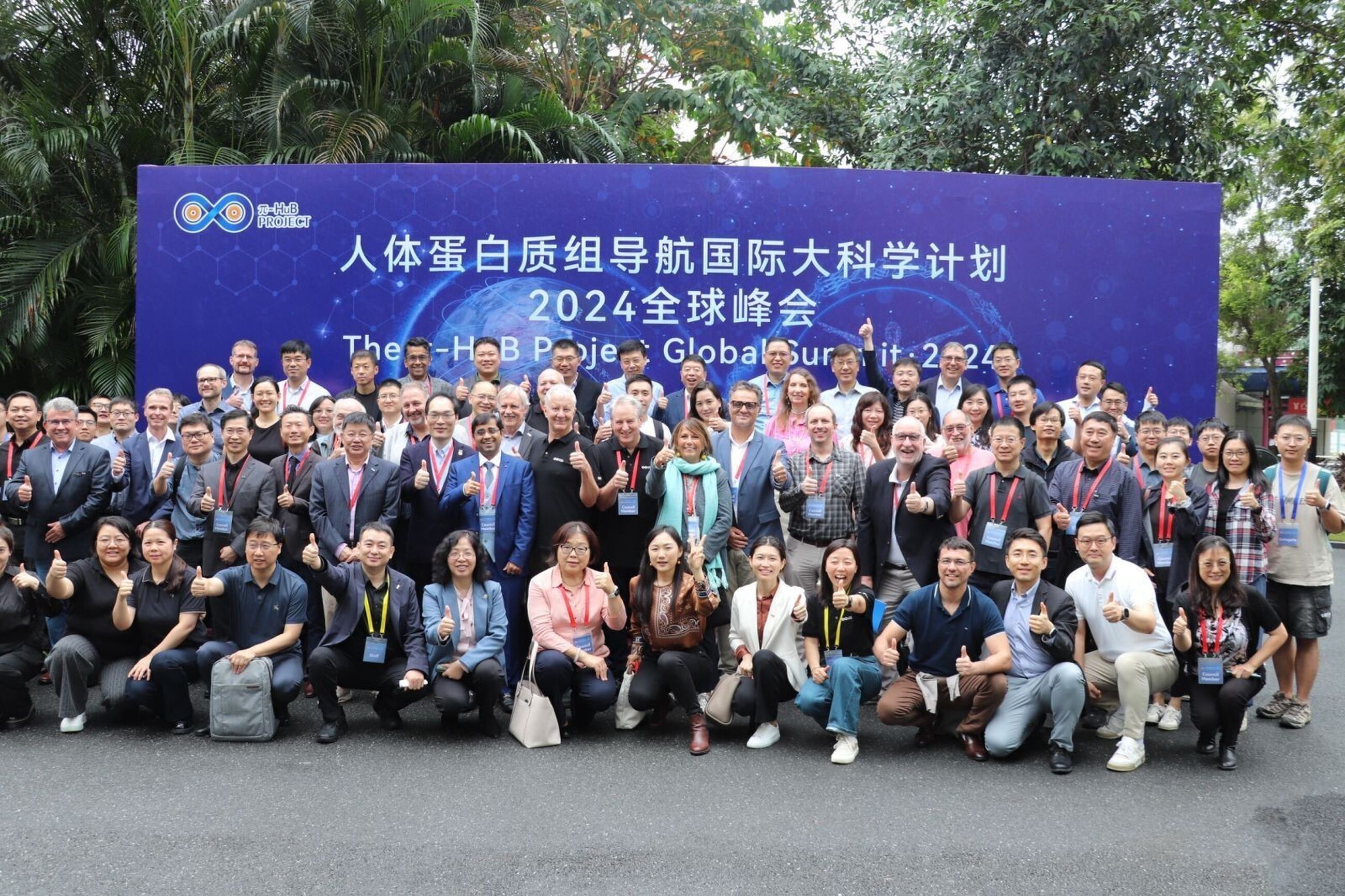Children’s Medical Research Institute (CMRI) scientists are part of an ambitious new program led by an international consortium, mobilising hundreds of cutting-edge expert teams from academia, government and industrial health sectors. The program aims to use a combination of proteomics and AI to usher in a new era of medicine and intelligent healthcare.
Called π-HuB (The Proteomic Navigator of the Human Body), this massive project was published online today in the prestigious journal, Nature. Unlike the genome, which is comprised of a list of all the genes in our bodies and is largely the same in all our organs during all our life, the proteome is constantly changing. The proteome is a term for all the proteins in our cells or tissues, and it is in constant flux, never keeping still, and as such provides an indicator of the state of health of our cells at any point in time.
“We anticipate that the π-HuB project will make a major contribution to biomedical research in the coming decades,” said CMRI’s Associate Professor Qing Zhong, one of the authors on the paper and an inaugural member of the consortium, who is in charge of the data integration sub-stream of the π-HuB project.
The π-HuB project has three goals. The first is to “discover principles of the human body”. The human body contains trillions of cells, which can assume different states within an individuals’ lifetime. These complexities can neither be predicted from the genome (our DNA), nor have they been systematically measurable with available technologies before. However, recent advances in proteomic technology and computational sciences now provide opportunities to investigate the intricate biology of the human body at unprecedented resolution and scale. Understanding the proteome will unlock this understanding.
The second goal is to develop a “Meta Homo Sapiens model” which is a 3D digital representation of human organs, tissues, body fluids and cells over time which will enable prediction of complex diseases and impacts of non-genetic factors on health.
The third and ultimate goal is to “build the π-HuB Navigator” which will change the paradigm of medicine. This new ‘phronesis’ medicine aims to prevent disease. This means very personalised monitoring and diagnosis, as well as disease prediction and early warning, to enable disease prevention, early treatment, and a long and healthy life.
Phase one of the project is underway and working to establish core concepts and demonstrate that the requirements of technology and data management are achievable. CMRI’s ProCan program, which has been a trailblazer in cancer proteomics, has contributed to the technology that will make the π-HuB Navigator possible.
“ProCan’s pioneering work in establishing large scale, reproducible cancer proteomics data, as well as analytics and machine learning advances, has been a significant contributor to this program and will be a vital part of its success going forward,” said Professor Phil Robinson, Co-Director of ProCan and another inaugural member of the consortium.
Read the paper here: π-HuB: the proteomic navigator of the human body | Nature
